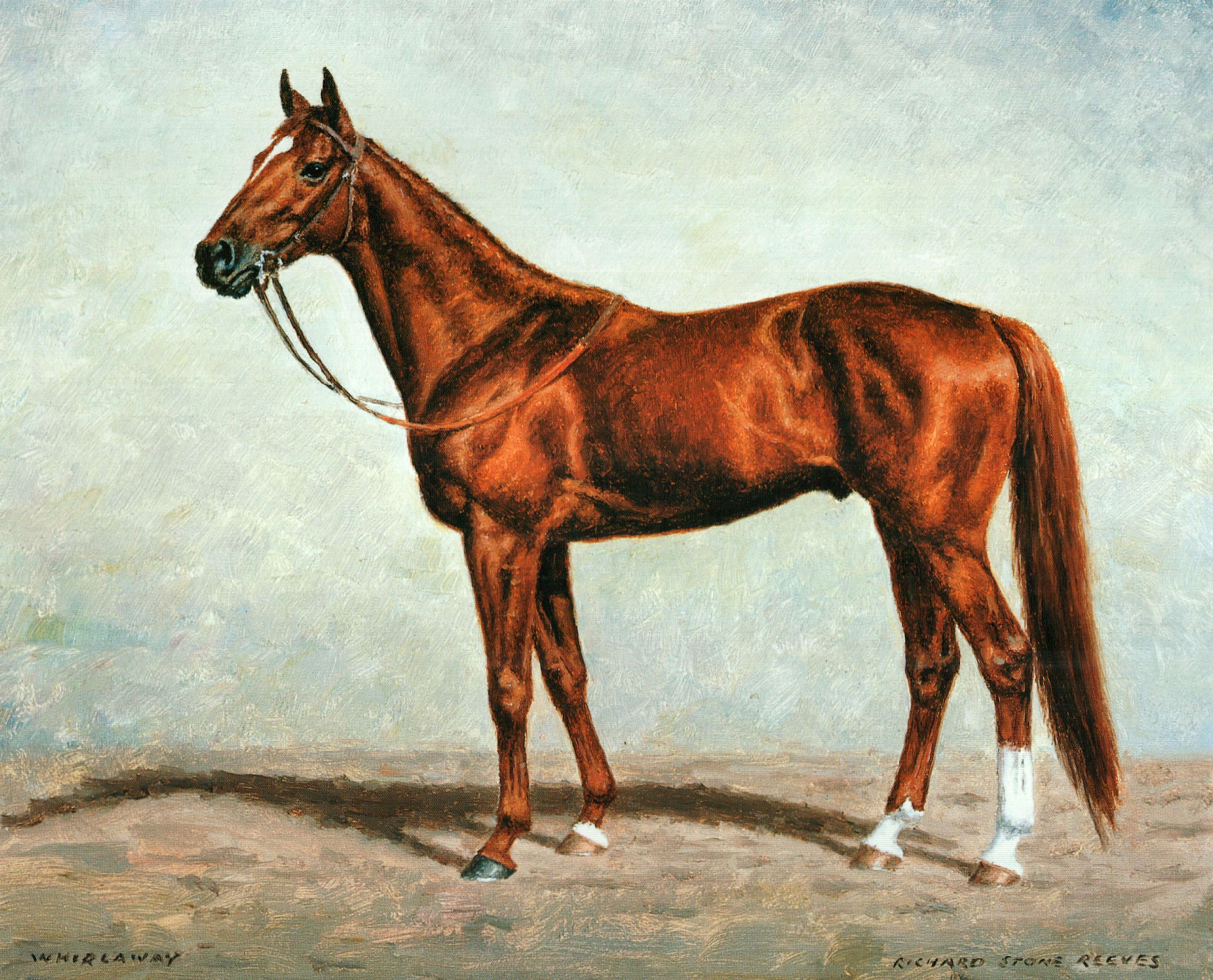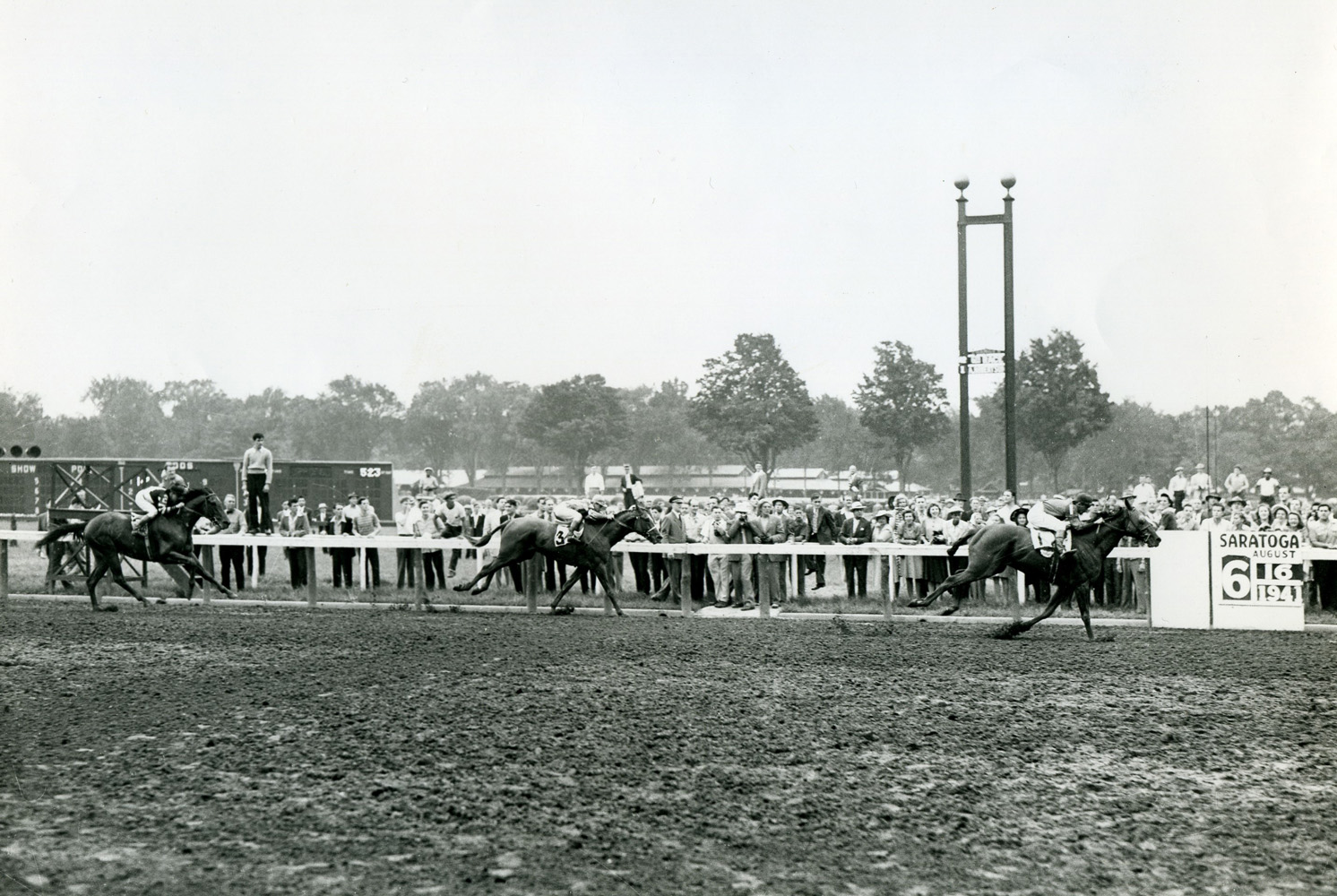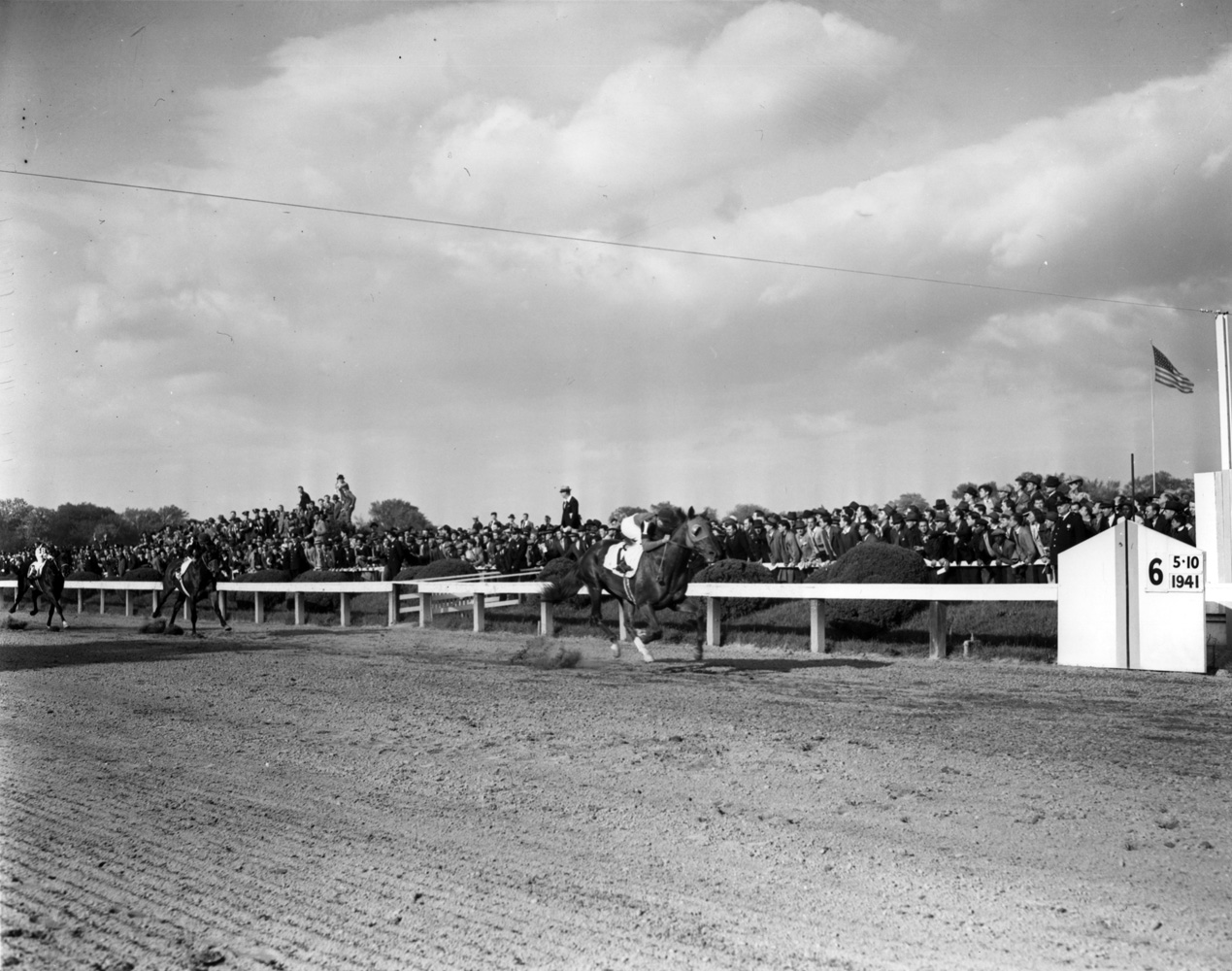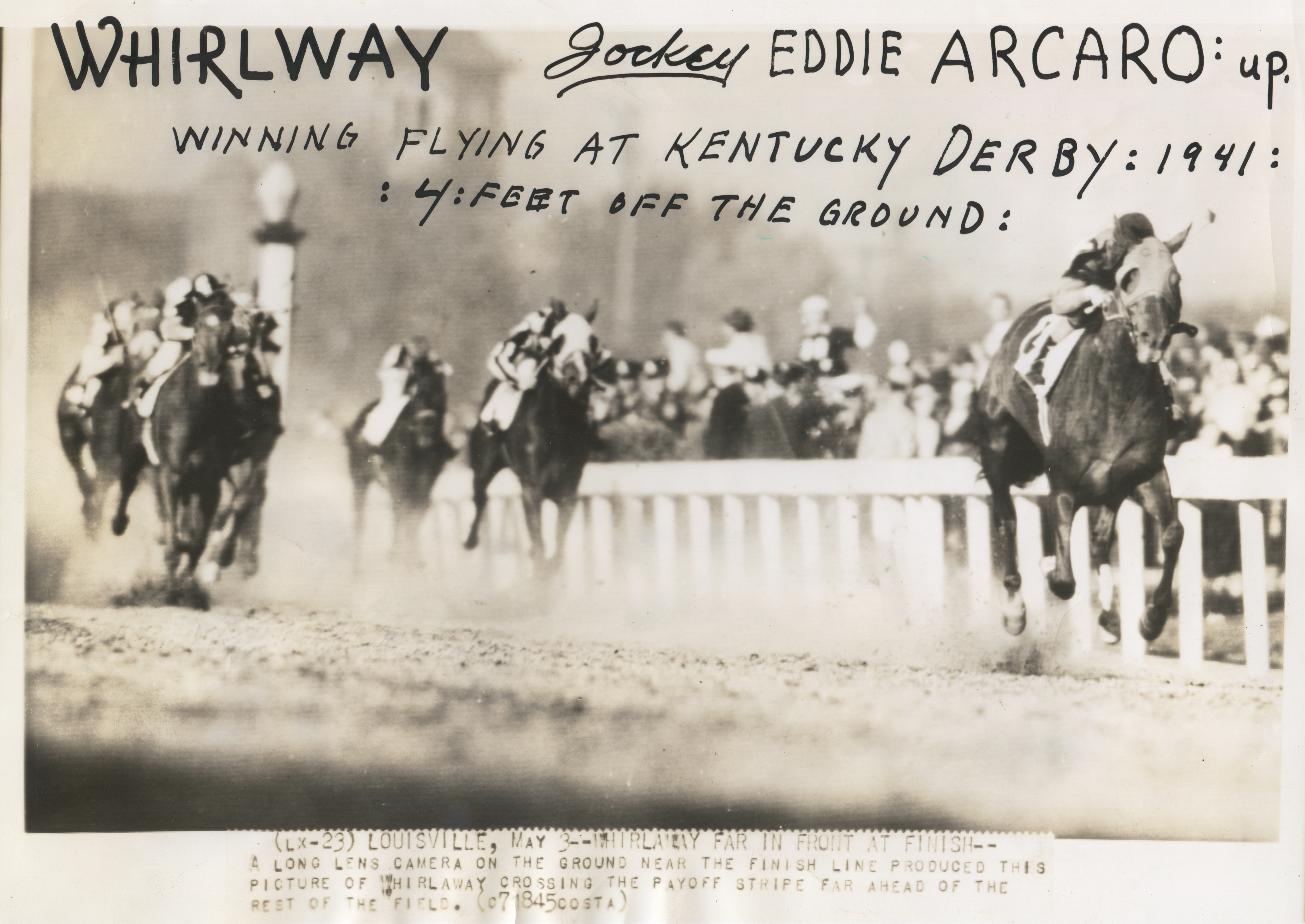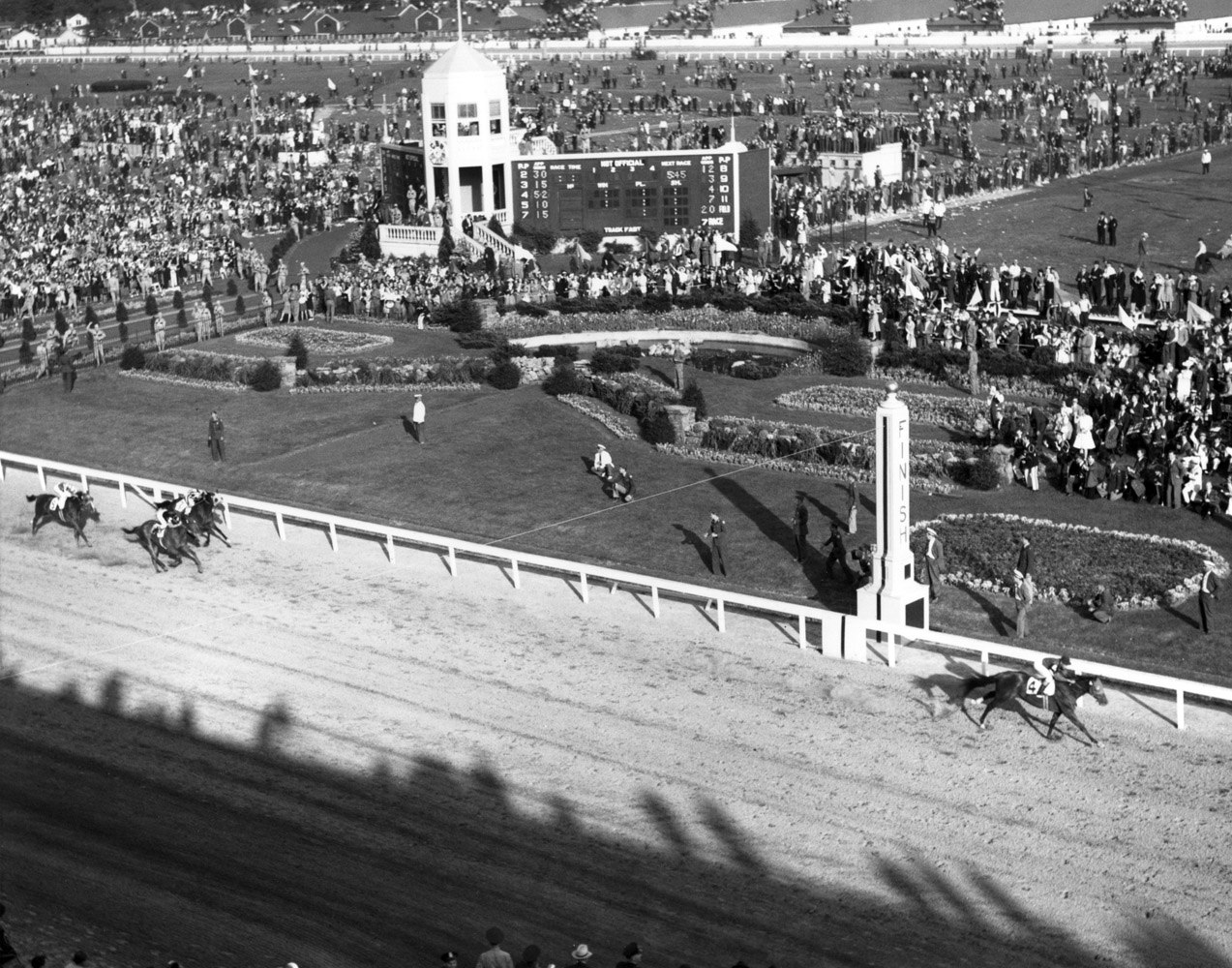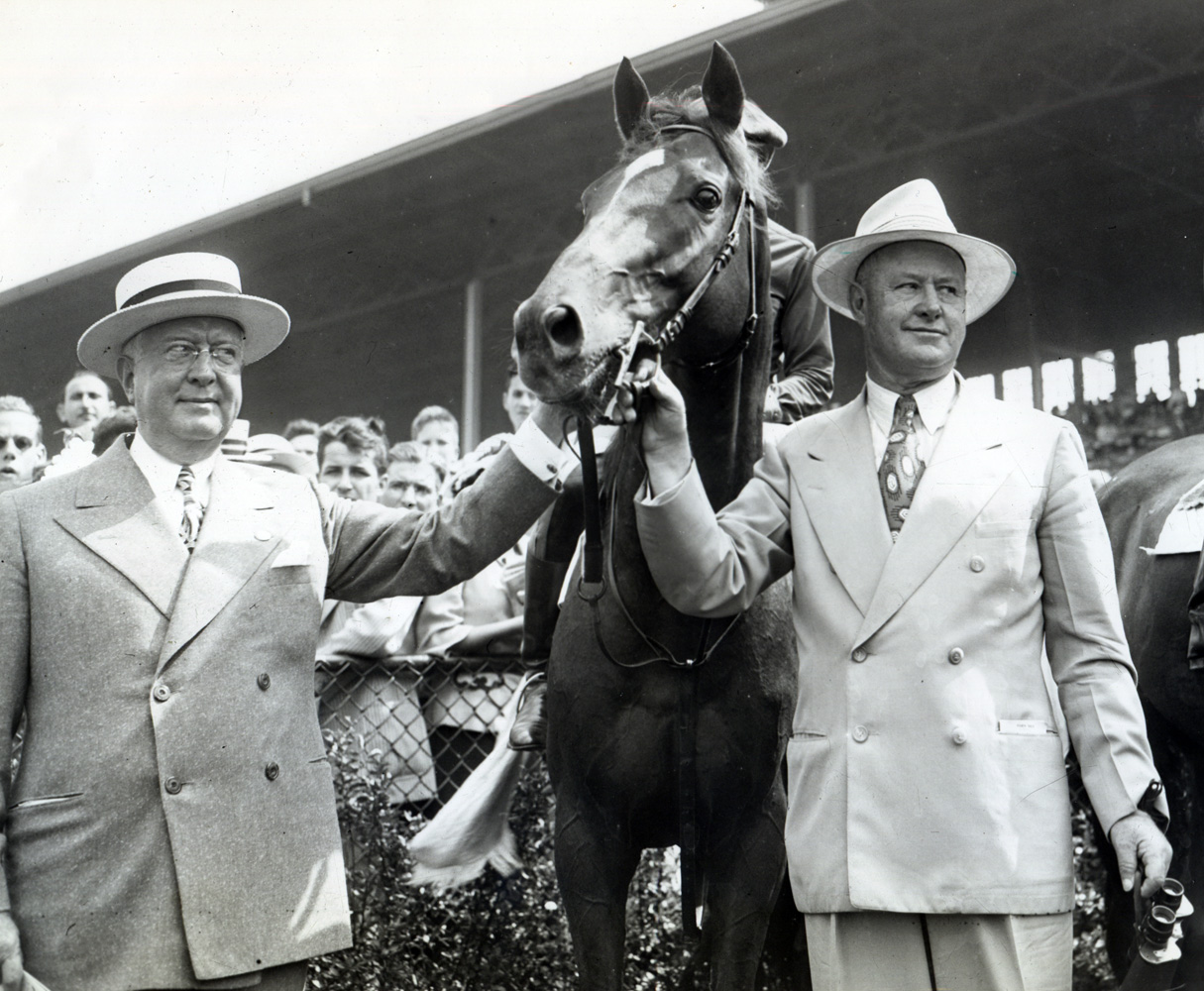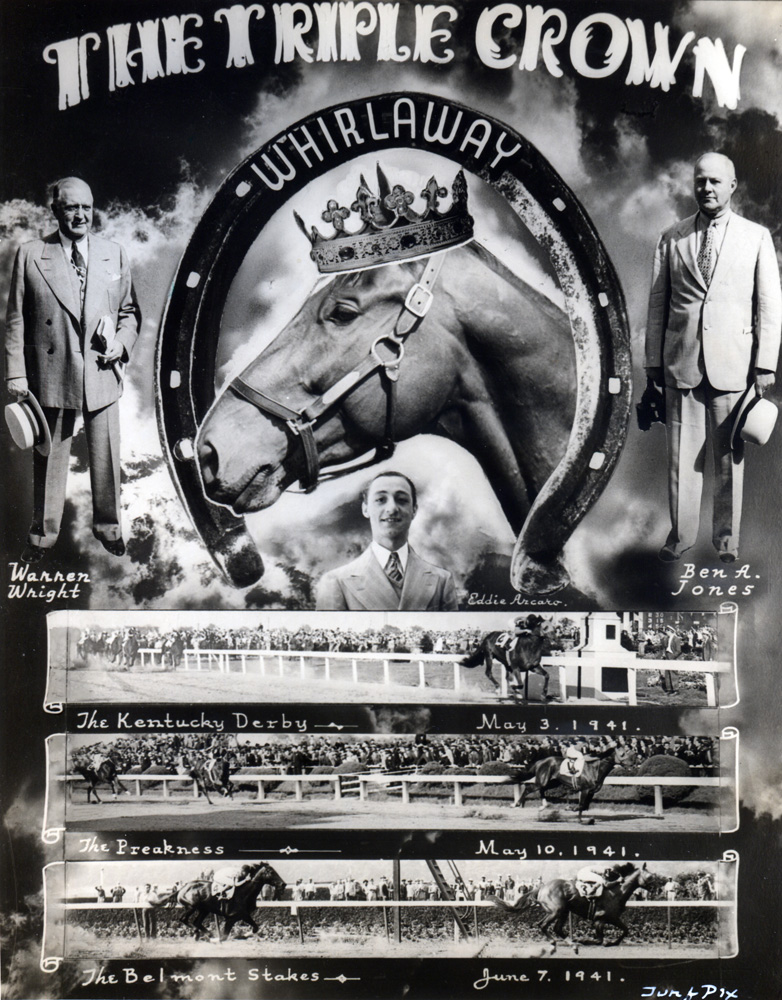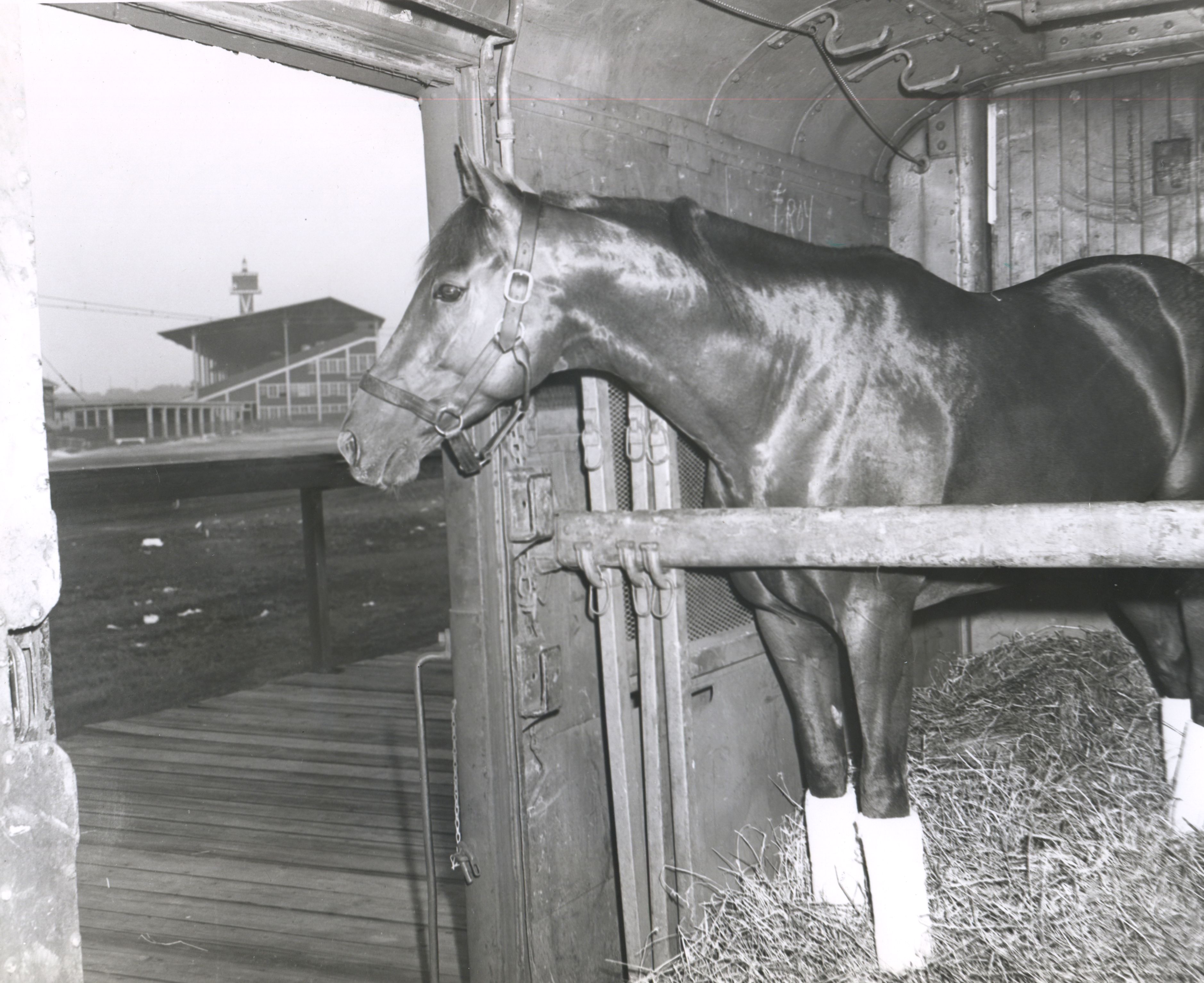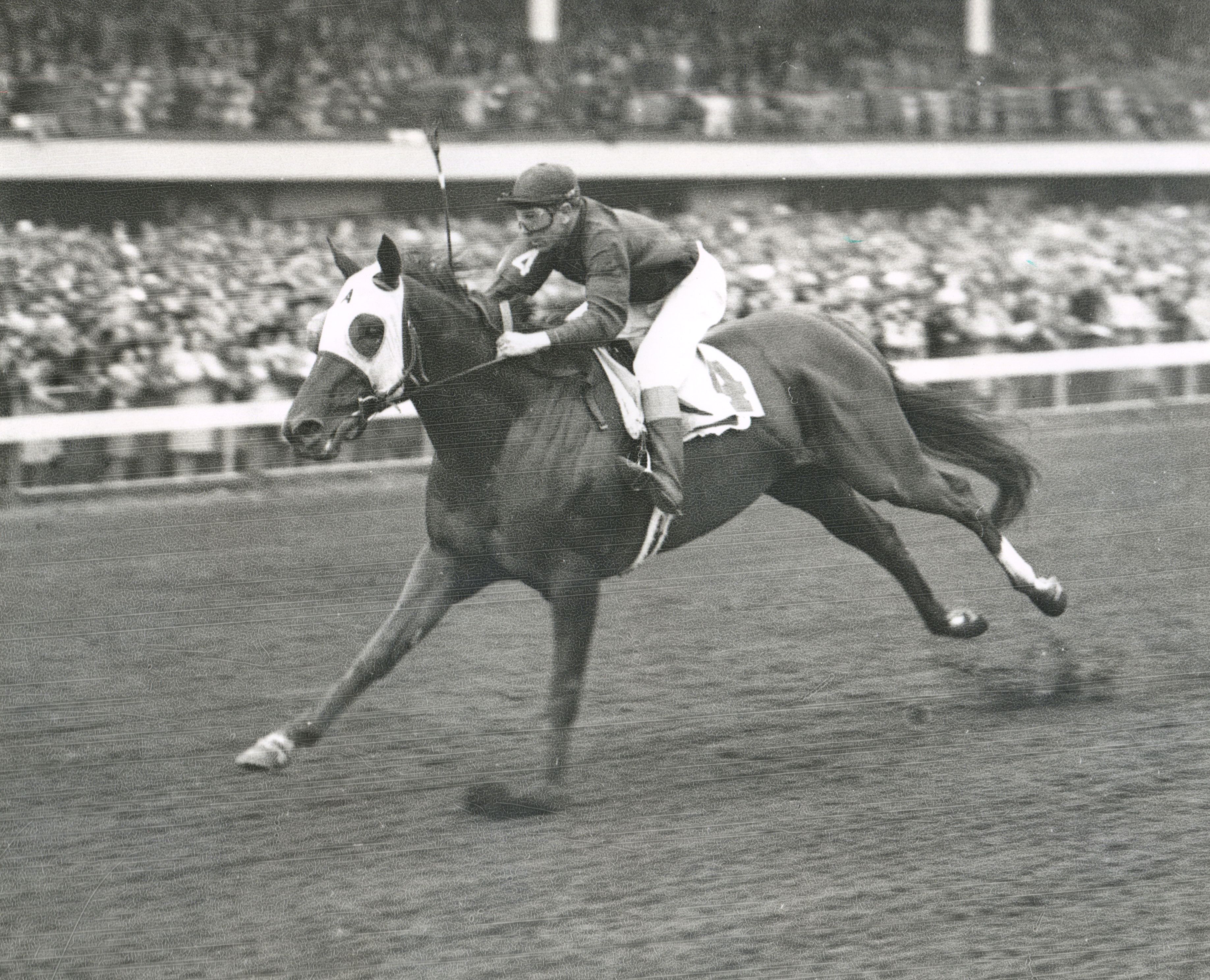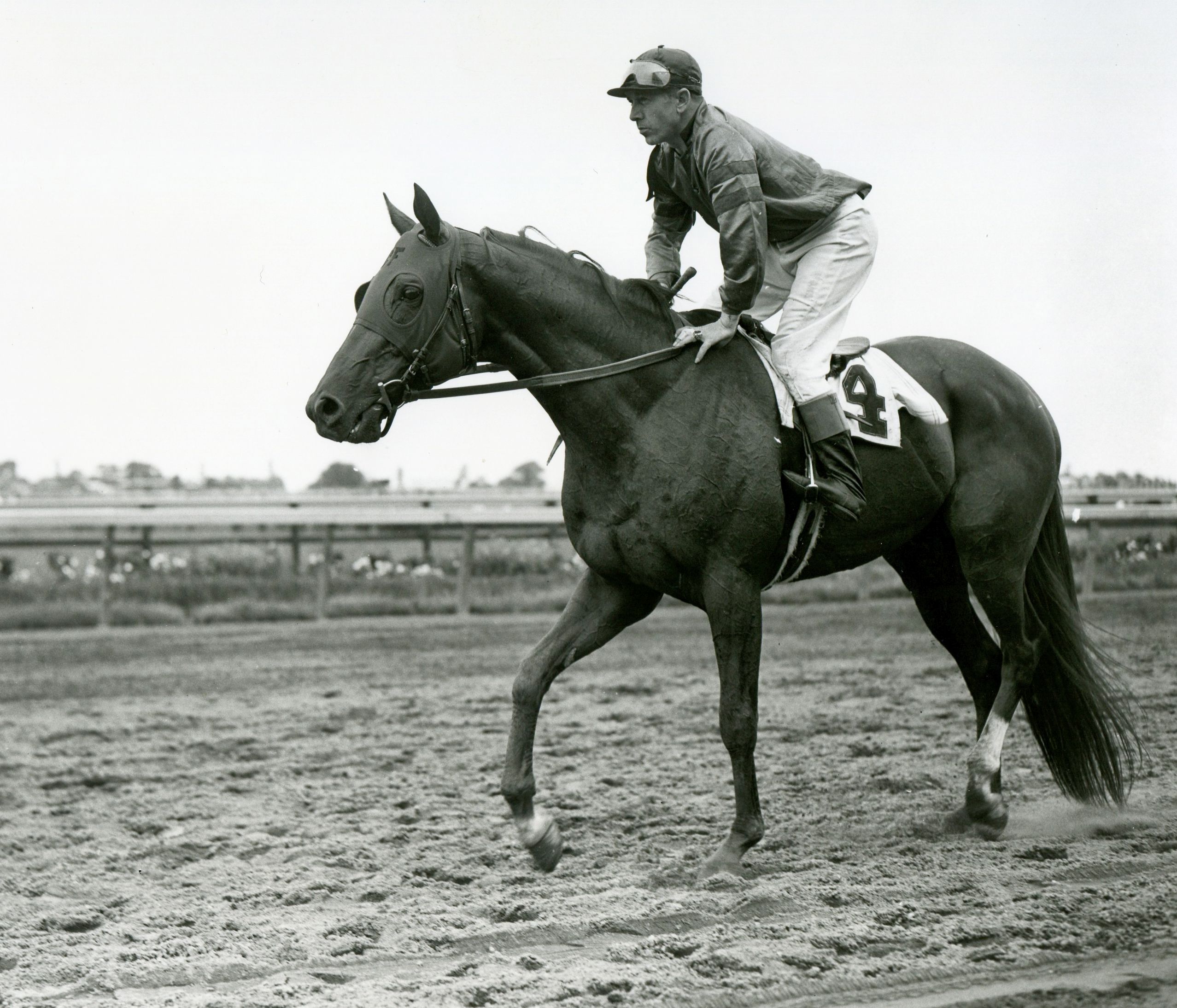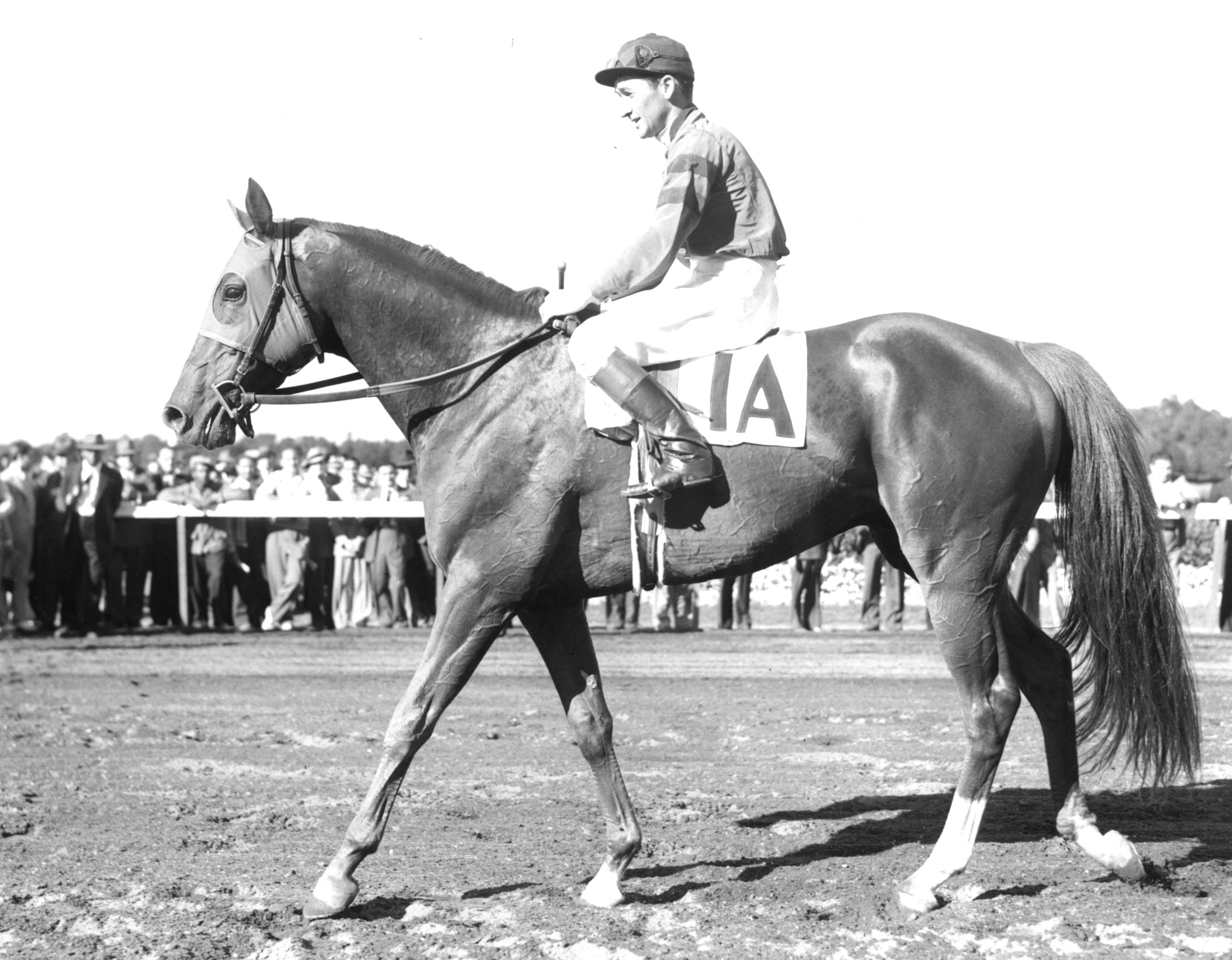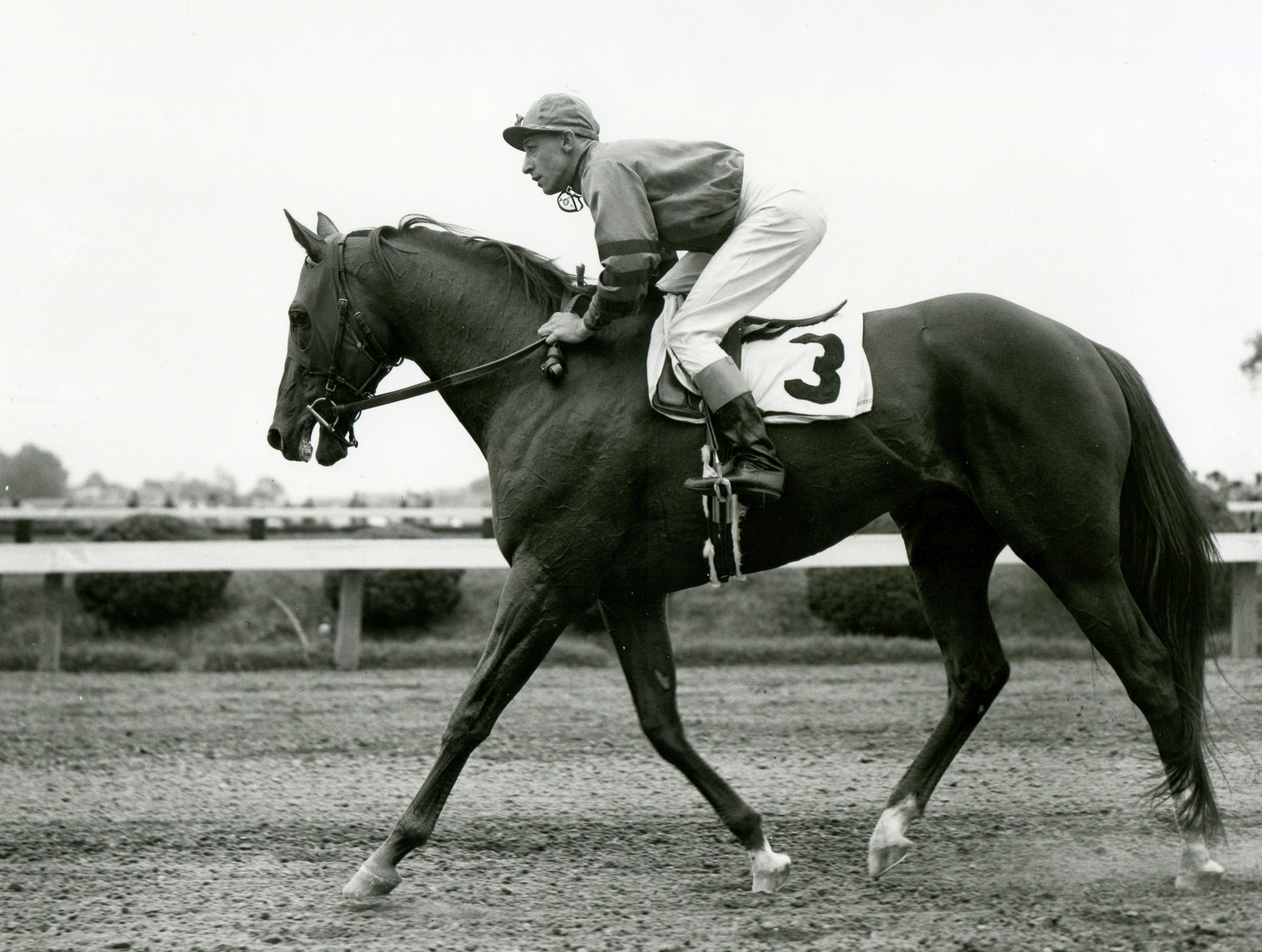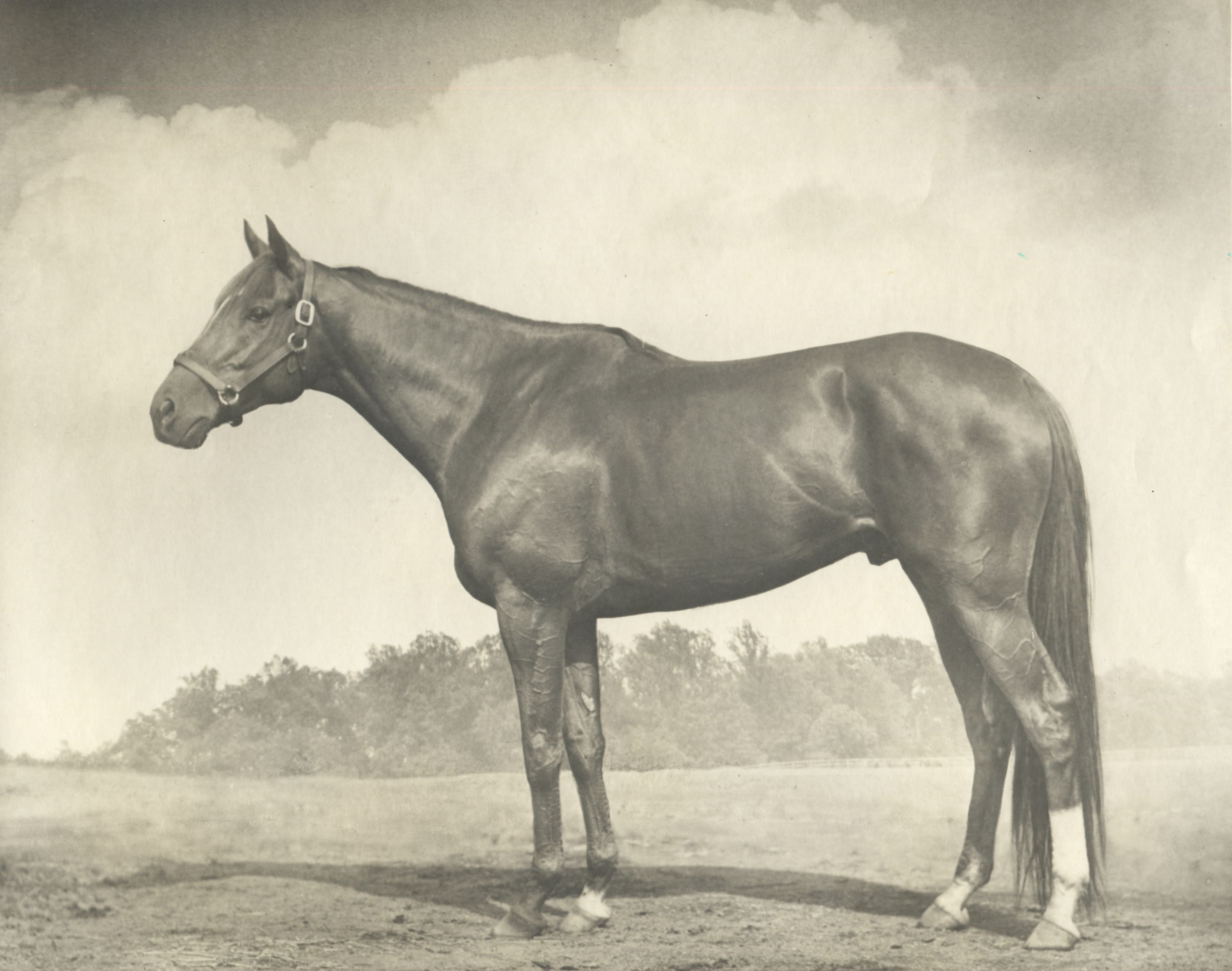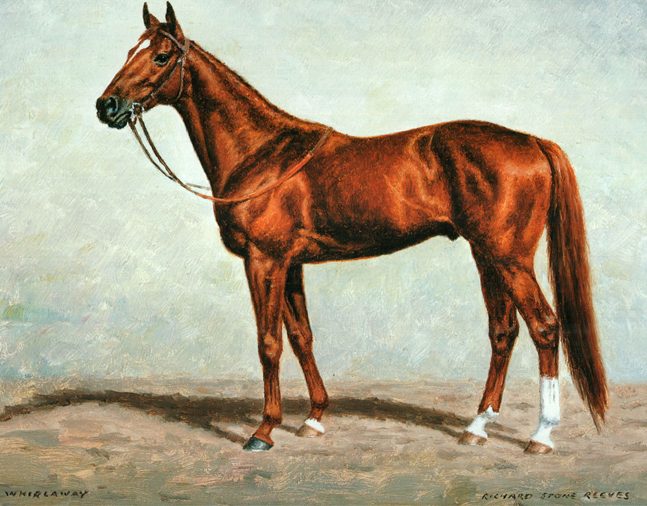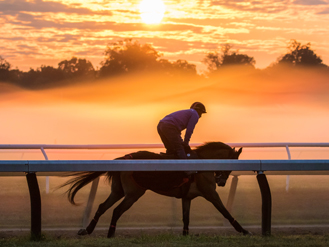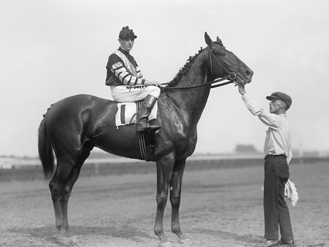Whirlaway (KY)
During the same year in which American sports fans were captivated by Joe DiMaggio’s 56-game hitting streak and Ted Williams batting .406, a four-legged superstar became equally as popular as baseball’s best batsmen. In 1941, the greatest sensation in thoroughbred racing was unquestionably Calumet Farm’s talented and quirky Whirlaway.
Racing Record
60
Starts
| 1940 | 16 | 7 | 2 | 4 | $77275 $77,275 |
| 1941 | 20 | 13 | 5 | 2 | $272386 $272,386 |
| 1942 | 22 | 12 | 8 | 2 | $211250 $211,250 |
| 1943 | 2 | 0 | 0 | 1 | $250 $250 |
Biography
During the same year in which American sports fans were captivated by Joe DiMaggio’s 56-game hitting streak and Ted Williams batting .406, a four-legged superstar became equally as popular as baseball’s best batsmen. In 1941, the greatest sensation in thoroughbred racing was unquestionably Calumet Farm’s talented and quirky Whirlaway.
A combination of amazing speed and erratic behavior, Whirlaway became America’s fifth Triple Crown winner that year and the first of Calumet’s record eight Kentucky Derby winners. Greatness, however, didn’t always come easy for Whirlaway. A son of 1930 Epsom Derby winner Blenheim II out of the Sweep mare Dustwhirl, Whirlaway, known affectionately as “Mr. Longtail,” was notoriously difficult to train and unpredictable on the racetrack.
“He jumped, he reared, he developed a habit of bearing out on the track as if headed for the rail,” said a New York Times report. “It was feared he might become an ‘outlaw’ or go completely to pieces and never be able to race again.”
At times it took several men to saddle Whirlaway and once on the track it was always a bit of a guessing game as to which direction he intended to run. Numerous times it was difficult for the photo-finish cameras to get a good look at Whirlaway because he had drifted out almost to the outer rail. Even his trainer, the Hall of Famer Ben A. Jones, got so frustrated with Whirlaway that he once described him as “the dumbest horse I’ve ever trained.”
But he could certainly run.
In the big picture, Whirlaway’s talent more than made up for the idiosyncrasies in his demeanor. Mr. Longtail displayed both his odd behavior and his incredible ability when he arrived at the races as a 2-year-old in 1940. After winning his career debut June 3, 1940, at Lincoln Fields in Chicago, Whirlaway then lost four of his next five races and began earning his reputation as an oddball with some baffling performances. In the Saratoga Special, he almost fell at the start and was running last in the field of eight at the far turn. Instead of making the turn, Whirlaway continued straight and ran right into the outer rail. Amazingly, jockey Johnny Longden was able to straighten Whirlaway out and win the race in the final 25 yards.
Whirlaway went on to win the Hopeful Stakes, Breeders’ Futurity, and Walden Stakes as a 2-year-old, foreshadowing his incredible potential. Turf and Sport Digest recognized him as the champion 2-year-old colt, as he earned $77,275 to top all juveniles.
As a 3-year-old, Whirlaway was paired with jockey Eddie Arcaro after some more misadventures early in the campaign. Jones also made the move to fit Whirlaway with a full-cup blinker over his right eye to help maintain the colt’s focus and composure. The results were phenomenal.
On May 3, 1941, a record crowd of more than 100,000 people showed for the Kentucky Derby. The massive crowd was treated to a memorable afternoon, as Whirlaway was able to put it all together and deliver on his considerable promise. In a blistering performance, Whirlaway won by a record eight lengths and broke Twenty Grand’s 10-year-old stakes record with a time of 2:01⅖ for the 1¼ miles.
Whirlaway’s time stood as the Derby record for 21 years and only three other horses — Hall of Fame members Old Rosebud (1914), Johnstown (1939), and Assault (1946) — have matched Whirlaway’s eight-length Derby victory margin. Following the Derby, columnist Bill Corum wrote: “Oh Whirlaway, Oh Whirlaway, that you made me feel so good today. One instant they had all been there on the bend together, the next, only the bright red blouse and the blue cap were where the race was supposed to be going on.”
Whirlaway proved his Kentucky Derby dominance was no fluke when he followed with a riveting performance in the Preakness Stakes, winning by 5½ lengths. Esteemed turf writer Joe Palmer said Whirlaway “carries in his armament the deadliest weapon a thoroughbred can have — an annihilating burst of speed that he can apparently turn on at any stage of a race.”
Only three opponents showed up in New York to attempt to take down Whirlaway in the Belmont Stakes. They shouldn’t have bothered. Whirlaway was never threatened. Arcaro eased his mount down to a light gallop in the final quarter-mile and the Calumet star joined Sir Barton, Gallant Fox, Omaha, and War Admiral as America’s fifth Triple Crown winner.
Whirlaway continued to thrive throughout the rest of the year. He added wins in the Dwyer Stakes, Saranac Handicap, Travers Stakes, American Derby, and Lawrence Realization to be named Horse of the Year. Overall, he posted a 13-5-2 from 20 starts and earned $272,386 as a 3-year-old.
In October 1941, Whirlaway was shipped to Santa Anita for the winter season, but those plans had to be scrapped in December. Following the bombing of Pearl Harbor on Dec. 7 and the outbreak of World War II, the entire Santa Anita season was cancelled. All transportation facilities were mobilized, stranding Whirlaway and the other Calumet horses on the West Coast. It was not until March of 1942 that they were able to return east.
Once his 4-year-old season began, Whirlaway returned to his exceptional form of his Triple Crown campaign, winning 12 of 22 starts and carrying as much as 132 pounds. Of the 10 races he didn’t win, Whirlaway was second eight times and third twice. His impressive list of victories included the Clark, Dixie, Brooklyn, Massachusetts, Garden State, Narragansett Special, Jockey Club Gold Cup, Washington, Pimlico Special, Governor Bowie, and Louisiana handicaps.
On July 15, 1942, Whirlaway won the Massachusetts Handicap, which was worth $43,850, to push his career earnings to $454,336, which surpassed Seabiscuit for the sport’s all-time earnings record. With his victory in the Jockey Club Gold Cup that October, Whirlaway became the first horse to earn more than $500,000.
Whirlaway concluded his 4-year-old campaign with a victory in the Louisiana Handicap at the Fair Grounds in New Orleans in December. Unfortunately, he hurt a foreleg in the race and was later diagnosed with a bowed tendon. At the end of the year, Whirlaway was once again named Horse of the Year.
Jones brought Whirlaway along slowly in his training following the bowed tendon in an attempt to bring him back to the races as a 5-year-old in 1943, but after two lackluster efforts it was clear Mr. Longtail was no longer the same horse. On June 26, 1943, Whirlaway finished fifth in the Equipoise Mile Handicap at Arlington Park and pulled up somewhat lame. The result convinced Calumet Farm owner Warren Wright to retire the two-time Horse of the Year.
Whirlaway made one final appearance on the racetrack, as he was paraded at Washington Park in Chicago on July 5, 1943. With a record of 32-15-9 from 60 starts and record earnings of $561,161, Whirlaway had secured a legacy as one of America’s greatest racehorses.
A week after his farewell to the track at Washington Park, Whirlaway returned to in Kentucky. In August, a grand celebration called “Whirlaway Day” was held in Lexington and Mr. Longtail settled into his new role as a stallion at Calumet.
In 1950, Marcel Boussac, one of the most prominent thoroughbred owners and breeders, negotiated a three-year lease for Whirlaway to stand in France. Boussac had become so infatuated with Whirlaway that he later convinced Wright to sell him outright. Whirlaway, however, died the morning of April 6, 1953, at the age of 15. He died in his stall 10 minutes after having been bred to a mare.
Overall, Whirlaway sired 18 stakes winners, including 1948 Coaching Club American Oaks winner Scattered. He is buried at the equine cemetery at Calumet Farm. Years after his retirement, Arcaro said of Whirlaway: “It was never any picnic to ride Whirlaway. Once he started to climb you just couldn’t slow him down. It was like stepping on the accelerator of a big Cadillac. How he could pour it on!”
Achievements
Champion 2-Year-Old Male (Turf and Sport Digest) — 1940
Horse of the Year — 1941
Champion 3-Year-Old Male — 1941
Horse of the Year — 1942
Champion Older Male — 1942
Triple Crown Highlights
Won the Kentucky Derby — 1941
Won the Preakness Stakes — 1941
Won the Belmont Stakes — 1941
Media
